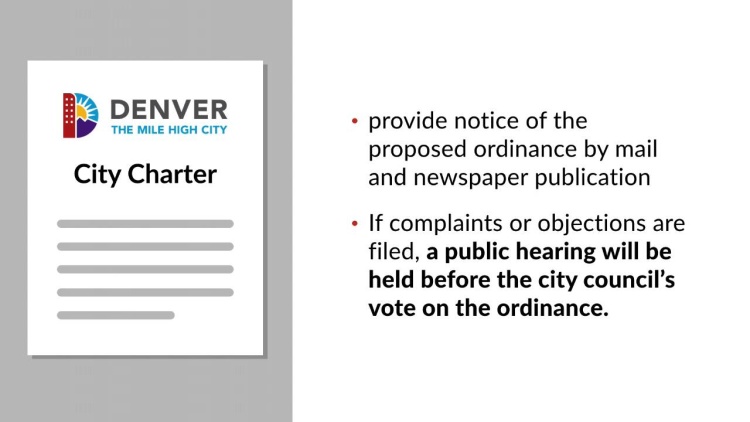Londoner v. City and County of Denver
United States Supreme Court
210 U.S. 373 (1908)
- Written by Susie Cowen, JD
Facts
The charter of the City of Denver (defendant) gave the city the power to make local improvements and to assess the cost of those improvements on property specifically benefited by them. The charter specified the steps that city authorities had to take to execute this power to make improvements and assess costs. For example, the charter required the city to give notice of the proposed assessment in the newspaper. If affected property owners filed written complaints or objections regarding the proposed assessment within 30 days of the notice, the city council was required to hold a hearing on the objections before voting on any ordinance that assessed costs on the improvements. Mr. Londoner and other property owners (plaintiffs) brought an action in state court seeking relief from the city’s assessment of a tax for the cost of paving a street upon which their lands abutted. The property owners asserted that they had submitted a timely objection to the assessment’s legality. However, the city council did not hold a hearing on the objection before voting to pass the ordinance assessing the costs, because the council said that the objection was not focused on how the assessment was to be apportioned. The trial court granted the property owners’ requested relief. In reaching its decision, the court found that the city offered no opportunity for a hearing prior to its assessment of the cost on the benefited landowners. The state supreme court reversed, holding that the tax was assessed in conformity with the United States Constitution and the laws of the state. However, the state supreme court did not disturb the trial court’s finding regarding a lack of opportunity for a hearing. Londoner appealed to the United States Supreme Court on a writ of error.
Rule of Law
Issue
Holding and Reasoning (Moody, J.)
What to do next…
Here's why 907,000 law students have relied on our case briefs:
- Written by law professors and practitioners, not other law students. 47,100 briefs, keyed to 996 casebooks. Top-notch customer support.
- The right amount of information, includes the facts, issues, rule of law, holding and reasoning, and any concurrences and dissents.
- Access in your classes, works on your mobile and tablet. Massive library of related video lessons and high quality multiple-choice questions.
- Easy to use, uniform format for every case brief. Written in plain English, not in legalese. Our briefs summarize and simplify; they don’t just repeat the court’s language.





